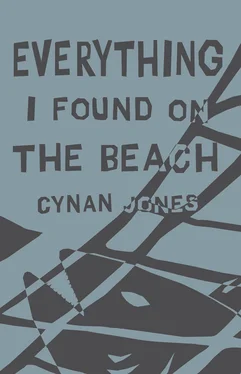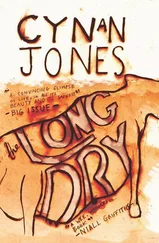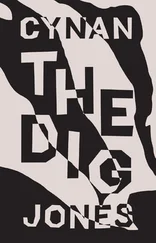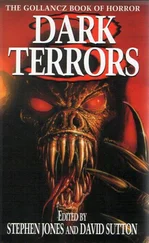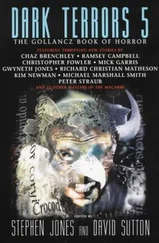They went on into the inner city. Instantly the slow urban traffic thickened and Stringer cursed. They had time before the ferry, but he hated to put the simple parts of a thing in jeopardy, like getting to the ferry on time to get the tickets, to take stock. “I’m a professional,” he thought. “That mostly means not getting the simple bits wrong.”
“This goddamned traffic,” he said out loud. They ground into it and stop-started. He had this nervous energy and he hated to stay still.
“I hate to be cooped up. That was the worst thing about the stretch,” he thought. He seethed and felt this anger come up. For him it was like some weird beast from outside. “That’s it. That’s it right there.” He was angry even at his own anger. “If it wasn’t for that I’d have been out in half the time. But that culchie deserved it.” He remembered melting the blade into the toothbrush handle, the way the plastic choked and bubbled like something lunar and seemed to paste itself into the razor to hold it fast.
“You couldn’t take that lip off someone and not do something about it. He deserved it,” Stringer told himself. “That culchie. He shouldn’t have pushed me.”
Stringer looked out at the streets. The people moving on them were bizarre colors against the cement. It was turning back into a dirty city, Stringer could feel it. Now the money was leaching away, the services were being sucked out like suds down the plughole of an emptying bath. The litter was collecting, the dog shit. The stones layering again with a mild soot. Just the colorful corner pubs were there, men smoking outside them. We got treated to a health spa, that’s all. It was just a visit. He felt a cruel joy at that.
“I should have got some kind of promotion, for keeping my mouth shut. I should have been fast-tracked when I got out. I deserve more than this, doing cleanup jobs with this big monkey. They got seven years’ head start on me, those others, and they left me behind. Seven years out while I was sitting around keeping my mouth shut. Just like getting stuck in traffic. Well, I’ve got brains of my own. I’m tired of this. Stuck in traffic. I deserve a chance to make something of myself.”
He fell to staring out of the window, a kind of heavy glass-like quality to him.

Hold was of singular purpose now. Some strong thing in him felt as if he could see those things before him that were about to come, but at the same time he felt this as a paper shadow, and that at any time that feeling of strength could blow down.
He thought back to home. He thought of Cara’s freckles, the secret freckles on her shoulders, and felt again that great brotherly love for her. He imagined Jake in the house, the sun coming in through the window of the new bedroom, the attic room where they’d had their den, he and Danny.
He imagined a busyness of men there, working on the house, the garden cleared, his hands stained with soil as he put in the shrubs and dug out the old borders. He wanted very much to have, at the end of this, the sense that he had done something complete, and turned someone’s life around.
“Where will I go,” he thought. “I don’t care, I can’t answer that. I’d like a small place right up the valley, and a boat.” He laughed gently at himself. “It won’t be enough for that. It won’t be enough for any of it, but it’s a start. It will secure the place and give us a start. Maybe I could get a boat though, start getting the money in for myself.” He felt wistful, thoughtful, philosophical. As if the determination was safe in him now.
He looked at the great ship sitting there at the terminal and had this picture of departure, what it must take to leave a thing. “Is that harder in the end than sticking with it?” he thought. “No.” He thought of his father. “No, following things through is harder. Keeping at them. Or maybe it’s just how we’re geared,” he thought. “We get to be a way, after a certain time, and we can’t be any other way however much we try.”
There are hundreds of driving forces, just another one of which is the desire to provide. And this was Hold. He could no more have walked away from the beach empty-handed than years ago refused his mother a drink. And in him too was a great sense of guilt at anything he took for himself. It was his will to provide without taking. It was, in a way, a form of self-harm. He had missed that vital stage where we learn that we must be able to allow others to know that we take from them.
He thought of the Pole’s wife and family and how they must have come on some big boat or plane like that but he did not think of them in any sad way. He thought of them just in the way that they were part of this thing, now — that everything was. That there was this massive great world out there and men were just the little things of what happened in it and that there was no difference between them and him or everyone else involved in this and that it was just some big process that he could or could not have set into motion, and he’d chosen to do it. Now here they all were.
He watched for a while a mother and child throw bread to a gaggle of ducks that gathered chocking on the promenade. “I didn’t choose that,” he thought, looking at the simple happiness of the mother and child. “I chose not to have that.”
He walked out past the boat store, looking back to the parked, restive ferries at their terminal, and stood awhile looking out across the bay. There were one or two people working on their boats where they stood propped on the hard ground, and the smell of paint and anti-foul drifted to him. The breeze licked in, and a pasty green weed skinned the rocks flattening out into the still water. Faintly, someone had a radio on and within that noise he placed finally the low howl, the hollow mewl of the wind through the masts seeming to amplify the little breeze.
He looked out at the sea. “I need that. I need that the sea is there,” he thought, looking over the water. “I need the knowledge of the presence of this. Sometimes it doesn’t look real. It is important. I cannot imagine being away from it. It seems impossible that we can exist at the same time as it.”
Hold looked at a big, new fishing boat. It was fresh with paint and the paint caught the sun with a wet look it was so fresh. Even the railings and the metalwork reflected, so new was it that it hadn’t been in the water yet, and the salt hadn’t mottled the zinc into a white, stone-like look.
The idea of the ownership of it came to him surreally, gave him a sense this was all strange, dream-like.
“I wonder how much she’d cost,” thought Hold.
He walked on, taking a path he thought would follow the coast, checking now and then that he still had a signal on his phone. He wanted to walk, felt he could walk for days.
Around him the gorse warmed and smelled of coconut. He was thinking of the new boat and, for some reason, fresh paint on the old house window frames and the suddenness of the place he came to took him by surprise, a strange dishevelled overgrown space. It just didn’t feel real, as if he was thrown into some kind of film again.
It looked like an old hotel, some abandoned edifice once grand, a Hollywood set somehow reasonless here. Its windows were shut up with blocks and graffitied over, like strange mascara on its eyes. There was a wonderment to it, a surrealness, as if someone had fixed up a backdrop. Something in him had this weird sentiment that this was where it could happen, referred back again to the sense he couldn’t help feeling, that all this was just a film.
Hold could feel his focus blurring. He had this odd sense of things being put in place around him. “It’s just a surprise,” he said. “It’s just a surprise to find it here.” Rabbits scattered, and there was evidence of them everywhere. There was something human and physical about the place, something in the curled hair of dead bracken that lay across the slope. As if the whole place wanted to stand up and pour its heart out.
Читать дальше
